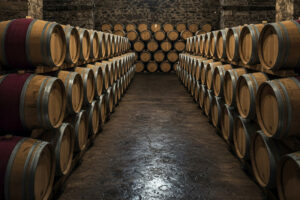It is a strange “war”. A war in which what matters is, paradoxically but not too, making as many prisoners as possible. The Masters Of Wine Institute has chosen this term to describe the tensions among wine producers, distributors and sellers, after 25 years in which - as the Anglo-Italian Pierpaolo Petrassi, head of sector purchases of alcoholic products in the UK firm Waitrose, pointed out in his opening discussion - the potential wine audience at the global level has expanded on all levels of the quality pyramid. Annette Alvarez –Peters, Global Wine Buying Director of the U.S. retail giant Costco, opened the discussion at the International Symposium Masters of Wine. And, from the top of the second largest retailer in America, with 105 billion dollars in revenue and 2 million transactions per day, the message is unmistakable: "At the end of the nineties, many manufacturers and distributors did not want to supply Costco with their products and this was due largely to a lack of interpersonal relationships among people who were supposed to bring these realities together”.
Since then, the U.S. giant has sold something like 3 billion dollars in alcoholic beverages, 50% wine, despite having a range of 150 products, covering all price ranges. On the other side of the fence, or the imaginary "battlefield", there are, however, players like Bruce Jack, former producer and current Chief Winemaker of Accolade Wines in South Africa. They say, “Producers need to be careful about what they want, because if they want access to large retailers they need to be sure they can meet the supply volumes required”. But, since “he who holds the keys of distribution is the critical link in the chain”, Jack believes that instead of a battle, wine transactions, “which are a lot more than you could ever imagine”, the key factors are trust and, again, interpersonal relationships.
There are, however, cases like the Swedish market, in which not only statements and revenues count: the State alcohol beverages monopoly, Systembolaget, said, “we should keep in mind also and especially, the added value of a given wine to the value chain compared to its competitors”, as well as their image in terms of transparency and sustainability, since “knowing who is in front of you, for private actors and not just public ones, is essential to avoid adding a boomerang product to the portfolio”.
In closing, Willi Klinger, current Managing Director of the Austrian Wine Marketing Board and former world "ambassador" of one of Italy's most renowned wine-making names, Gaja, added, "there is a battle between sellers and buyers, but they have no wine culture. And by that I mean you need to understand that the term "entry level" is subjective, because if those who sell and those who buy are both well aware of what's behind a bottle of wine in euros - both in sustainability and negative externalities of production - then it becomes much easier and also much more beneficial to the whole system to change the perception of the consumer, making him realize that wine is not a commodity with which to get drunk, but rather a product that is full of poetry”, he said, citing Oscar Farinetti.
Copyright © 2000/2026
Contatti: info@winenews.it
Seguici anche su Twitter: @WineNewsIt
Seguici anche su Facebook: @winenewsit
Questo articolo è tratto dall'archivio di WineNews - Tutti i diritti riservati - Copyright © 2000/2026






































































































































































































